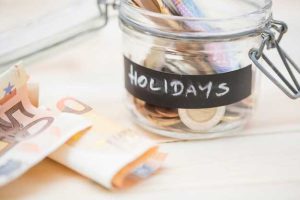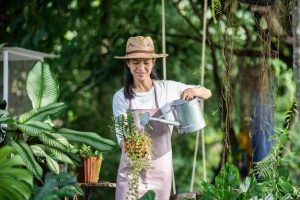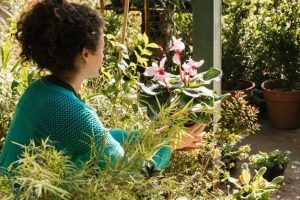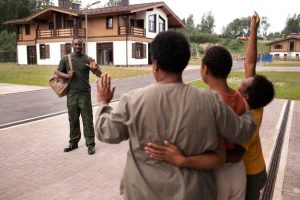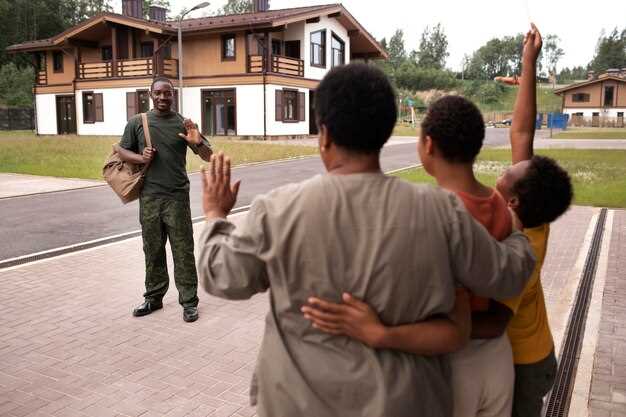
Pros and Cons of Living in Nicaragua: An Expat's Perspective
Living in Nicaragua offers a unique blend of natural beauty and a low cost of living, making it an attractive option for many expats. You’ll find stunning beaches, lush landscapes, and a warm climate that invites outdoor activities year-round. Consider the affordability of housing and everyday expenses, which often allow for a comfortable lifestyle without breaking the bank. Embrace the opportunity to integrate into a welcoming local culture, where friendly interactions are part of daily life.
Despite these appealing aspects, challenges exist. Limited access to healthcare services and amenities can be concerning for some expats. Urban areas might offer more options, but remote locations can lack essential services. Additionally, navigating the bureaucratic processes for residency or property ownership may require patience and perseverance. Preparing for these hurdles ensures that you can focus on enjoying your new life in this beautiful country.
Carefully weigh the advantages of Nicaragua’s rich culture, breathtaking scenery, and low living costs against potential drawbacks, such as infrastructure challenges and access to services. This balanced perspective equips you with valuable insights as you contemplate your move. Each expat experience is unique, and understanding these nuances will help you make informed decisions about your new home.
Best Cities for Expats in Nicaragua
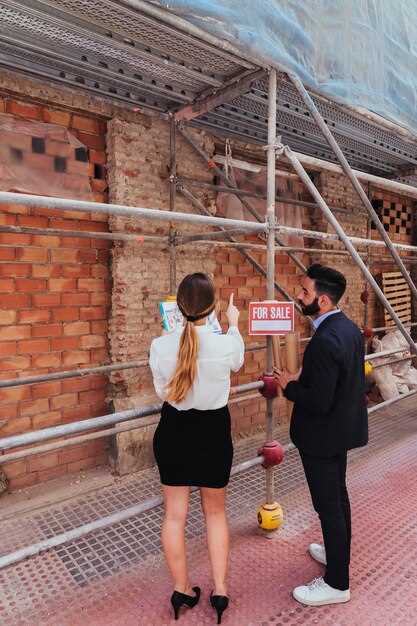
Granada stands out as a favorite among expats for its colonial charm and vibrant atmosphere. The city’s historic center, with its colorful architecture and lively markets, offers plenty of opportunities to socialize. You’ll find a range of cafes, restaurants, and cultural activities that make it easy to connect with both locals and fellow expats.
San Juan del Sur
San Juan del Sur attracts those looking for a beach lifestyle. This coastal town brings together surfing, yoga, and a friendly community. The relaxed vibe encourages mingling, and many expats live here year-round or visit frequently. The local economy thrives on tourism, providing numerous options for dining and entertainment. Enjoy picturesque sunsets and active nightlife in this laid-back town.
Managua
Managua, the capital, is ideal for those seeking urban conveniences. The city boasts modern amenities, shopping centers, and a diverse expat community. Networking opportunities abound, especially in business sectors. Cultural events and festivals provide insight into Nicaraguan life while offering chances to engage with locals. Living in Managua allows you to enjoy both city life and easy access to other regions of Nicaragua.
Cost of Living in Nicaragua Compared to the US

Nicaragua offers a significantly lower cost of living compared to the US, making it an attractive destination for expats. Monthly expenses in Nicaragua can be reduced by up to 50%, depending on lifestyle choices. Basic groceries average around 30% cheaper than in the US; for example, a dozen eggs costs about $1.20, while a similar purchase in the US might be around $3.
Housing and Utilities
Renting an apartment is one of the biggest savings. For instance, a one-bedroom apartment in the city center can be found for $300 to $500, whereas the same in a major US city might cost upwards of $1,500. Utilities, including electricity and water, typically run about $100 monthly, which is often half the cost in the US. Internet service is relatively affordable, averaging around $30 per month.
Transportation and Healthcare
Transportation costs are also lower. Local bus fares are less than $1, and owning a car incurs lower fuel and insurance costs. As for healthcare, Nicaragua provides high-quality medical services at a fraction of the cost in the US; a doctor’s visit may be around $25, significantly cheaper than typical copays in the US. For expats, living in Nicaragua means enjoying a comfortable lifestyle with substantial savings. Choosing to live here can enhance your financial freedom while offering a diverse culture and beautiful scenery.
Healthcare System Insights for Expats
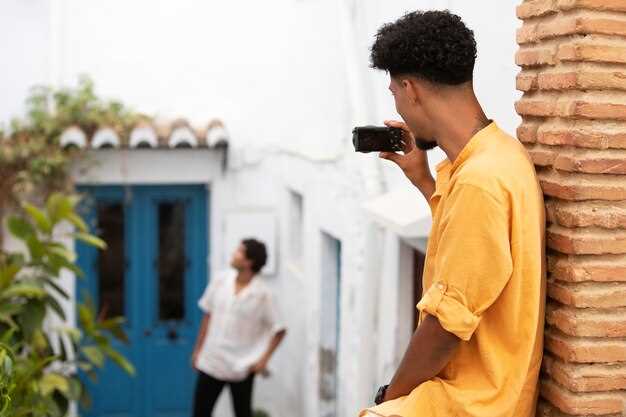
Prioritize finding a local doctor you trust. Many expats recommend building a relationship with a bilingual healthcare provider familiar with the needs of foreigners. Most cities have private clinics offering high-quality care, often at a fraction of the cost compared to the U.S. or Europe.
Nicaragua has both public and private healthcare systems. Public hospitals provide free care, but experiences may vary. The private sector offers shorter wait times and personalized attention, which many expats prefer. Healthcare facilities in cities like Managua and Granada rank higher in quality than those in rural areas.
Insurance is a key factor for expats. Many opt for international health insurance plans that cover treatments abroad. Several local insurance companies provide plans tailored for residents. Evaluate options based on network coverage and excluded services.
| Type of Care | Cost Range (USD) | Notes |
|---|---|---|
| General Consultation | $10 – $50 | Routine check-ups are affordable, especially in private clinics. |
| Specialist Consultation | $30 – $100 | Access to various specialists; ensure they speak English. |
| Emergency Care | $50 – $200 | Expect long wait times in public hospitals; private clinics are quicker. |
| Routine Lab Tests | $5 – $100 | Prices depend on the type of tests; generally affordable. |
Pharmacy access is widespread in cities. Many medications, including prescription drugs, are available over the counter. Familiarize yourself with local pharmacy hours and the availability of your required medications.
Pediatric care is reliable, with pediatricians available in major cities. Seek recommendations from other expats for trustworthy healthcare providers who specialize in children’s health.
Join local expat communities online for support and firsthand experiences regarding healthcare. Recommendations for specialists, clinics, and hospitals can be invaluable. Networking with others who share similar healthcare needs makes navigating the system easier.
Cultural Adaptation: Embracing Nicaraguan Life
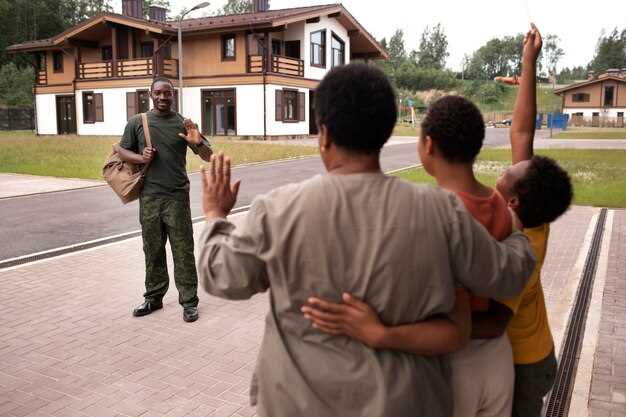
Participate in local traditions and celebrations to truly connect with Nicaraguan culture. Engage in festivities like La Gritería or the San Jerónimo Festival. These events showcase the country’s rich religious and cultural heritage. Dressing in traditional attire during these festivities can help you blend in and feel more a part of the community.
Language Skills
Learning Spanish significantly enhances your experience. Start with basic phrases to initiate conversations; locals appreciate any effort to communicate in their language. Consider enrolling in language classes or using mobile apps for daily practice. This opens doors to deeper relationships and a better understanding of cultural nuances.
Culinary Exploration
Explore Nicaraguan cuisine to appreciate local flavors. Try traditional dishes like gallo pinto, vigorón, and nacatamales. Visit mercados (markets) for fresh ingredients and experience the culinary landscape firsthand. Cooking classes can also provide insights into the preparation of local meals, fostering a connection with the culture.
Safety and Security: What to Expect as an Expat
Familiarize yourself with local customs and neighborhoods to enhance your safety as an expat in Nicaragua. A solid understanding of your surroundings can greatly reduce risks and improve your experience.
Crime Overview
Nicaragua has relatively low violent crime rates compared to other Central American countries. Nonetheless, petty crime does occur, especially in tourist areas and cities. Here are some safety tips:
- Avoid displaying valuables like jewelry and expensive electronics.
- Use reputable transportation services, especially at night.
- Keep your belongings secure in crowded places.
Community Safety
Engaging with local expat communities can provide valuable insights and connections. Consider joining online groups or attending meet-ups to share experiences. These interactions can help you learn about safe areas and local safety practices.
- Follow local news sources for updates on safety issues.
- Establish a network of friends and contacts who understand the dynamics of the area.
- Participate in neighborhood watch programs if available.
Stay informed about the legal system and rights as an expat. Understanding your legal status can provide peace of mind in any situation. For serious incidents, knowing how to contact your embassy can be crucial. Maintain a list of important phone numbers, including local emergency services.
Finally, cultivate personal safety habits like remaining aware of your surroundings and trusting your instincts. These practices can significantly enhance your overall security while living in Nicaragua.
Understanding the Local Legal Requirements for Expats
Register your residency within 90 days of your arrival. This applies to all expats regardless of nationality. You will need to provide a valid passport, a completed residency application form, and proof of income to attach to your application.
Documentation for Residency
Gather necessary documents, including a criminal record check from your home country and birth certificate, which must be apostilled or legalized. Keep copies of all documents, as local authorities may request them throughout your residency process. Having documents in Spanish can also simplify interactions with local officials.
Understanding Property Ownership
Non-Nicaraguans can own property, but there are restrictions close to the coastline or border areas. To secure property legally, hire a reputable local lawyer to assist with transactions and ensure the title is clear. Verify that the property meets local zoning laws, especially if you plan to build or renovate.
Navigating Transportation Options in Nicaragua
Utilize local buses, known as “microbuses,” for budget-friendly travel. They connect major cities and rural areas, offering an authentic experience. Fares are low, typically under $1, but be prepared for crowded conditions.
Renting a Vehicle
Renting a car gives you flexibility to explore. Numerous rental agencies exist in cities like Managua and León. Consider these points:
- Inspect the vehicle for damage before leaving the lot.
- Insurance is recommended; check if your credit card covers rentals.
- Driving is on the right side; familiarize yourself with local traffic rules.
- Road conditions can vary, especially in rural areas, so plan accordingly.
Local Taxis and Rideshare Services
Taxis are widely available and can be flagged down or ordered through apps like Uber and Didi. Here’s what to note:
- Agree on a fare before you get in, as most taxis do not use meters.
- Ride-sharing apps provide a safer and often more transparent option.
- Ensure the driver’s identification matches the app details before entering the vehicle.
With various transportation options, getting around Nicaragua can be smooth and enjoyable. Choose what suits your needs best and enjoy the adventure ahead.
Retirement Planning Tips for Expats in Nicaragua
Research the cost of living in your chosen area. Nicaragua offers a range of options from urban cities to tranquil villages, each with varying expenses. Understanding housing, food, healthcare, and leisure costs allows for better budgeting.
Healthcare Considerations
Prioritize access to healthcare facilities. While Nicaragua has private healthcare that is generally affordable, some areas may lack modern equipment or specialists. Establish connections with reputable clinics and doctors early. Consider international health insurance to cover emergencies that may arise.
Legal and Financial Aspects
Consult with a local attorney to understand residency requirements and property laws. Familiarize yourself with local banking options and currency exchange rates. Consider opening a local bank account for daily transactions, simplifying your financial management.
Plan for taxes, both in Nicaragua and your home country. Research tax responsibilities to avoid surprises. Engaging a tax professional familiar with expat issues can provide clarity and peace of mind.
Develop a social network. Join expat groups and local communities to build relationships and gather information about living in Nicaragua. This support system can assist with advice on daily life and cultural integration.
Evaluate your retirement income sources. Ensure that your pension, savings, or investments will cover your living expenses in Nicaragua. Adjusting your withdrawal strategy may be necessary to align with the local cost of living.
Video:
8 Month’s of LIVING in NICARAGUA here are my Pros and Cons!
8 Month’s of LIVING in NICARAGUA here are my Pros and Cons! by Emense Coffee Movement 81,434 views 2 years ago 8 minutes, 1 second
Q&A:
What are the main advantages of living in Nicaragua for expats?
Nicaragua offers several advantages for expats. One of the most appealing aspects is the low cost of living. This includes affordable housing, groceries, and services. The climate is also a big draw, with warm temperatures year-round that make outdoor activities enjoyable. Additionally, the local culture is rich and welcoming, allowing expats to immerse themselves in a unique lifestyle. The natural beauty of the country, with its volcanoes, lakes, and beaches, also provides numerous recreational opportunities.
Are there any challenges that expats might face while living in Nicaragua?
Yes, expats may encounter several challenges while living in Nicaragua. One major issue is the healthcare system, which can vary significantly in quality, especially outside major cities. Language can also be a barrier for those who do not speak Spanish, making everyday communication and accessing services more difficult. Additionally, safety concerns related to crime and political instability can affect expat life. It’s crucial for newcomers to stay informed and take necessary precautions to navigate these challenges successfully.
How does the cost of living in Nicaragua compare to other Central American countries?
The cost of living in Nicaragua is generally lower than that in many other Central American countries, such as Costa Rica and Panama. Accommodations, food, and transportation can be more affordable, making it an attractive option for expats looking to stretch their budgets. However, prices can vary based on location; urban areas might be pricier than rural parts. For expats, Nicaragua often presents a good value for those seeking a comfortable lifestyle without excessive expenses.
What is the expat community like in Nicaragua?
The expat community in Nicaragua is quite diverse and growing. Many expats are drawn to places like San Juan del Sur and Granada, where they can connect with others sharing similar experiences. There are social groups and events that facilitate interaction among expats, providing opportunities to build friendships and support networks. While some expats choose to live quietly, many enjoy engaging with both local residents and fellow expats, contributing to a sense of belonging in their new environment.
